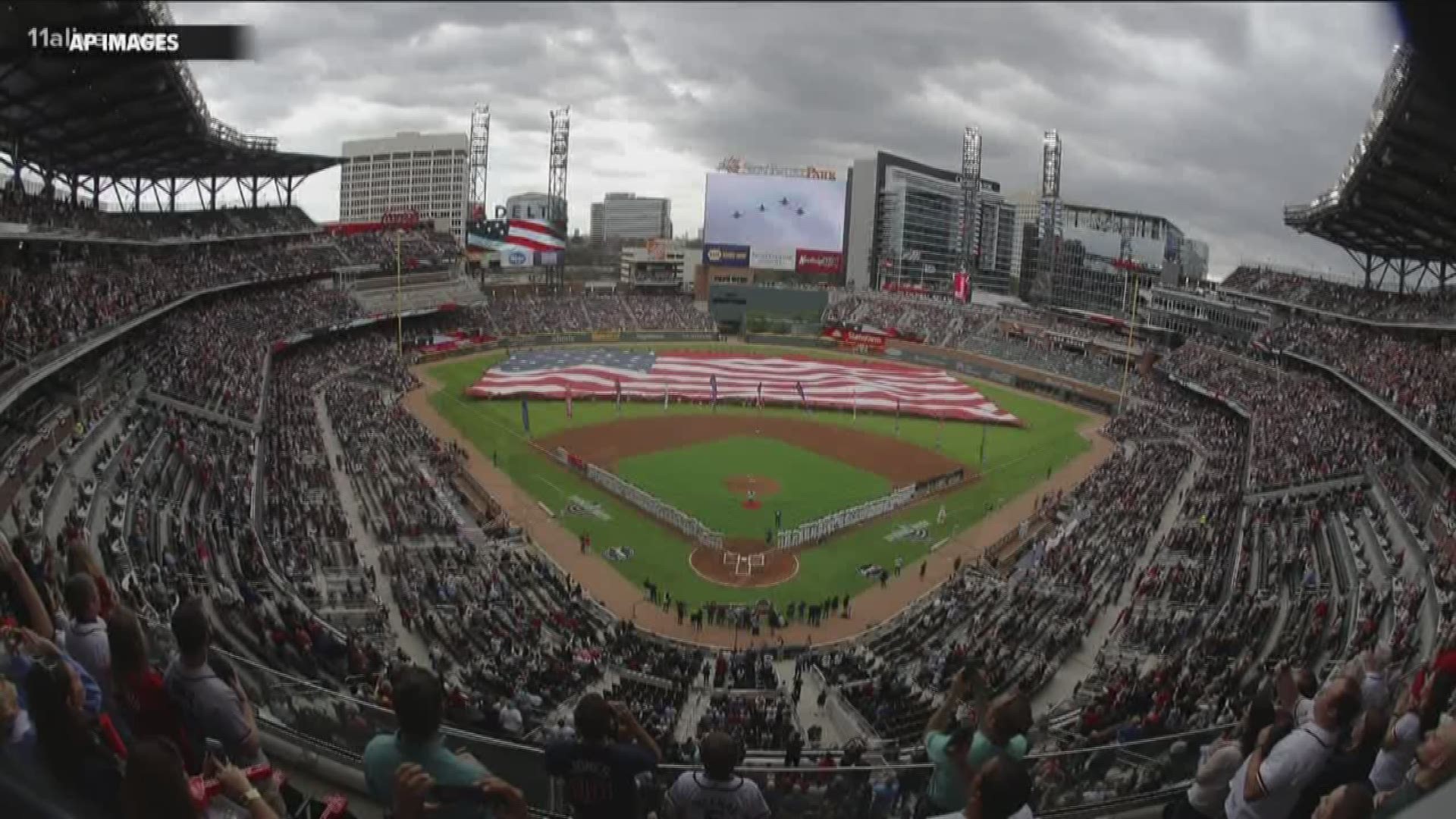ATLANTA — After a 2-year-old girl was hospitalized after being hit by a 106 mph foul ball at a Major League Baseball game at Minute Maid Park in Houston in May, there were increased calls for other MLB parks to extend their netting in order to protect fans.
The calls were met by mixed reactions from fans, with some fans insisting that the netting added necessary protection - especially for younger fans, who were not ready for, or in the position to, possibly catch any errant foul balls that landed in the stands.
Traditionalists - long-time baseball fans, who relish the feeling of sitting in the stands and being able to catch foul balls when they are hit out of play - complained that this took away from the overall experience of going to the game and being there in person.
Immediately after the May incident in Houston, in a non-scientific survey taken by our sister station KHOU, viewers were closely divided on the issue. In that poll, 51 percent of viewers said that Major League Baseball should require extra netting down the baselines.
Following the Houston incident, the Houston Astros announced plans to extend 32-foot-high protective netting down the left and right field lines to just short of the foul poles.
This is not the first time that Major League Baseball has required teams to extend the protective netting behind home plate. In 2018, teams were required to extend the netting to the ends of the dugouts on both sides of home plate.
As long as professional baseball has been played, foul balls have sailed into the stands. According to statistics researched by our Washington sister station WUSA, Bloomberg found that about 1,750 fans per year are hurt by foul balls at MLB games.
In August 2018, in Los Angeles, a foul ball hit by a San Diego Padres batter in the 9th inning sailed above the protective netting behind home plate and landed squarely on a 79-year-old Linda Goldbloom's head. She was hospitalized and died four days later.
Although her death was ruled an accident, the Los Angeles County coroner said that her death was due to "acute intracranial hemorrhage due to history of blunt force trauma," directly attributable to the foul ball that struck her in the head, according to ESPN.
A 2018 Indiana University study found the risk to fans of being struck by a foul ball has recently increased because the hits are faster and fans are sitting closer than before.
The average foul ball enters the stands at speeds of about 100 to 110 mph. At that rate, a fan sitting 60 feet from home plate only has 0.04 seconds to react -- and that is if they are paying close attention to the action.
Tickets to both major and minor league professional baseball games -- including those from the Braves -- have historically included a legal statement on them that says that fans assume "all risk and danger incidental to the game of baseball and/or other events, whether occurring prior to, during or subsequent to, the actual playing of the game or event, including specifically (but not exclusively), the danger of being injured by thrown or batted balls, thrown or broken bats, bat fragments, persons, animals, or other items, and agrees that the Braves/MLB Entities are not liable for injuries resulting from such causes."
In Houston, the extended netting was unveiled ahead of the Astros home game against the Detroit Tigers at Minute Maid Park on Monday night.
The netting rolls up so that fans and players are able to interact before the games. It is described as knotless and thinner so that it is easy to see through.
“I love it. I wish we had implemented it before,” said Astros fan Laura Labry. “Just because of the injuries. We were here the night the little girl got hit, and it was awful. It sent chills up your spine, and it just made you cry, and you didn't even know them. It's a simple fix.”
The Washington Nationals and Chicago White Sox were the first teams to extend netting which they did that during the All-Star break. Other teams, including the Braves, have announced plans to extend netting in their home parks in the coming weeks.

